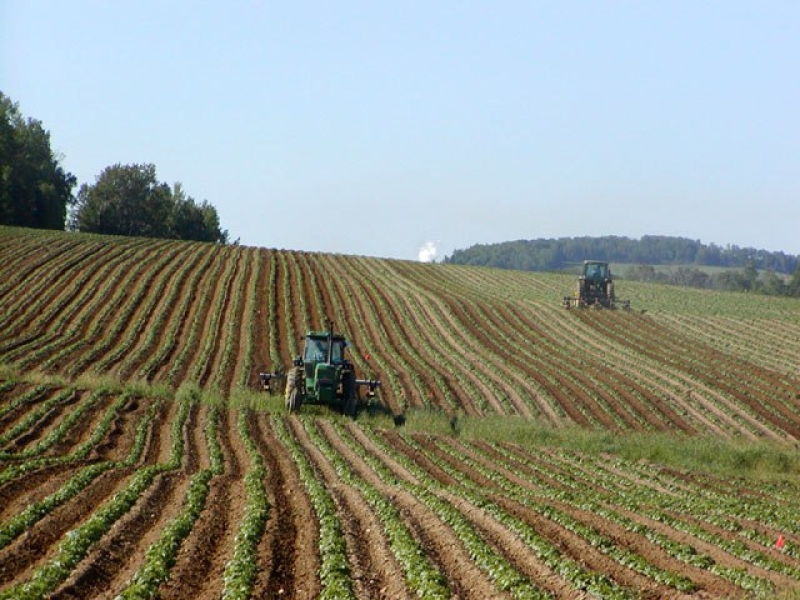- NCP Demands Impeachment, Arrest of President |
- PM Pledges to Modernise, Strengthen Border Force |
- Dhaka Tops Global Pollution List with Hazardous Air |
- Country Observes Martyred Army Day Today |
- 100 CSOs rally against Trump’s trade tactics, urge access to drugs |
Corporate-led Industrial Agriculture Draining Africa Dry

Industrial agriculture. Creative Commons. Tractor in potato field
Since the early 2010s, corporations have acquired over 7 million hectares of land for large-scale, industrial farms in sub-Saharan Africa, with most of these projects focused on producing water-intensive crops in already water-stressed regions. Driven by the goal of expanding export production of water-intensive crops, governments are auctioning Africa’s water resources to the highest bidder. Development banks, like the African Development Bank and the World Bank are bankrolling a massive rollout of new irrigation projects across the continent to facilitate more agribusiness investments.
In 2021, the UN estimated that nearly 160 million people in Sub-Saharan Africa (14% of the population) were affected by water scarcity and stress, and, with the effects of climate change, the numbers are expected to be even higher in 2025 and beyond. For example, export-oriented industrial agriculture consumes 85% of Morocco’s water resources, intensifying the severe water stress gripping the kingdom, even as the country endures six consecutive years of drought.
The impact of industrial agriculture’s thirst for water is felt most acutely by African women. Already tasked with managing households, caring for families and farming for food, women and young girls are also responsible for collecting all the water needed for both their homes and farms. It is estimated that African women collectively spend about 40 billion hours annually fetching water. As more of their water sources are diverted for use on export-oriented industrial farms, it will make it even harder for them to access the water they need. Paradoxically, rural women possess invaluable knowledge about local water sources, their usage, storage and conservation.
The fixation of governments, development banks and corporations on large-scale irrigation projects for industrial agriculture in Africa has to end. Water needs to instead be in the hands of the small-scale food producers who feed the continent and who are best able to develop solutions to the challenges posed by climate change.
Source: https://grain.org/e/7208

